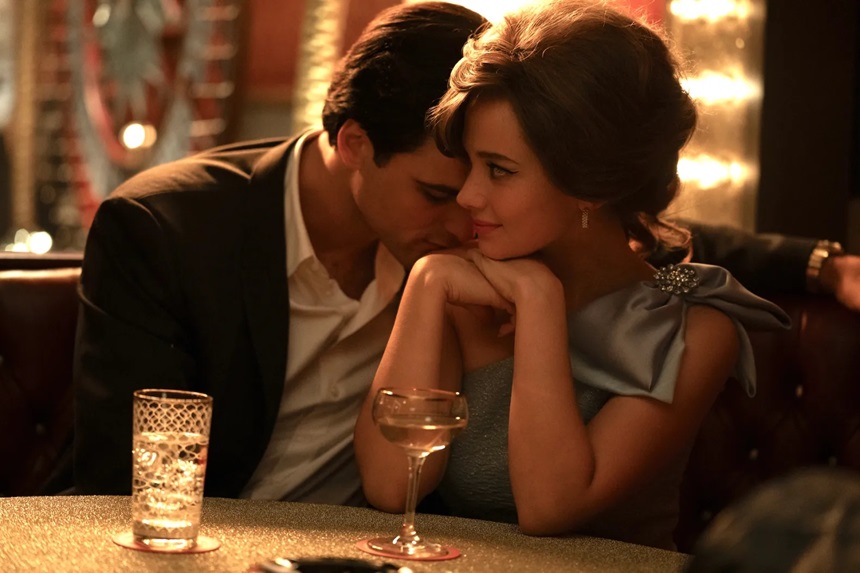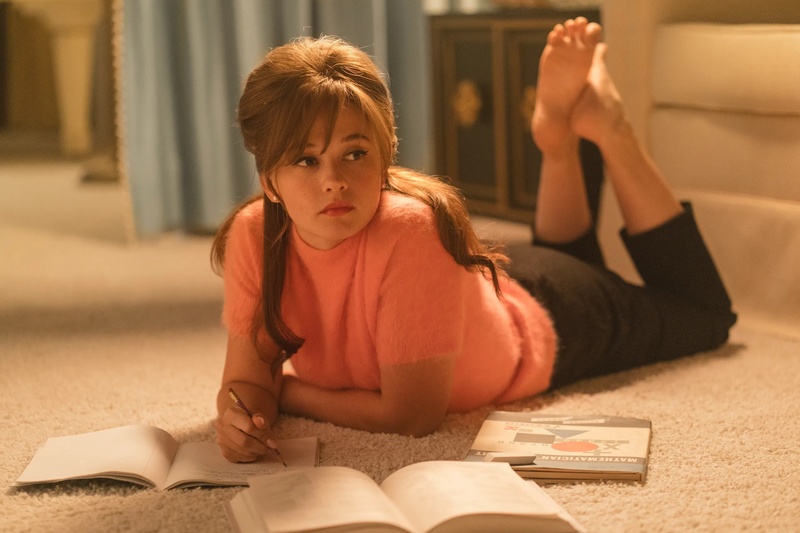PRISCILLA Review: A Girl's Truth of the Dark Side of Graceland
Sofia Coppola's new features stars Cailee Spaeny as the woman kept behind the man.

I doubt Sofia Coppola would ever deny that she grew up very privileged - which is likely why most of her films centre around privileged people, especially white women. This is not a negative, of course - many artists stay within a comfort zone, if only because they have such an understanding of the layers that lie below the surface of a story, they know how to peel it back. Likely there wouldn't be a filmmaker so adept at making a film of one of the most known spouses of the 20th century.
Priscilla Beaulieu Presley, despite coming into her own as an actor in the late 20th century, still remains most famous for her marriage to Elvis - whom, for the few reading this who might not know, still remains one of the most famous and popular musicians of all time. There are several films and at least one television series about him, his home in Memphis remains a tourist draw, and his songs continue to receive radio play. His public persona, however, was at odds with his private one. Likewise, Priscilla herself was something of an enigma, at least during their marriage. It wasn't until the publication of her book Elvis and Me that the public were let into the world of their relationship, and that is was more of a slow-burn manipulative nightmare than the fairy tale romance that inexplicably soured.
So how do you adapt a story like this, from the perspective of one whose memories began as a teenage girl? One who found themselves thrown into privilege, with no safety net and no idea how to cope? If you're a filmmaker with the background of Coppola, you let that perspective become the film. We are immediately seated into Priscilla's memory and imagination, seeing it through her eyes at each step, in order to understand what it was like to come of age in the strange world of decadence, celebrity, and loneliness into which she was thrust?
We meet Priscilla (Cailee Spaeny) as a shy teenager, sitting alone at the army base diner, her parents having moved the family there to further her father's career, and Priscilla finding it lonely and dull. In walks a man, who just starts talking to her, asking her if she wants to meet Elvis Presley, already rising to great fame in the USA, also stationed overseas at this time. To Priscilla, this is the beginning of the fairy tale, to be singled out not only by this man, but by Elvis (Jacob Elordi) - for once she is at the party, he pays just the right amount of attention to make her feel wanted, but holds back enough to make her want more. And yet, to our more adult, 21st-century eyes, what we see is a procurer for a sexual predator - after all, Elvis is 24, and would not want for companionship - so why did he need a 14-year-old to be brought to his attention? We've all heard the 'she's mature for her age' excuse used by men to manipulate girls - and to blame them, when it suits.
And yet, Coppola makes sure we never leave Priscilla's side, and always are able to see through the proverbial eyes she had at the time - to her, the romance of writing week after week to a man who barely answers, then sweeps her off to Memphis, seems extraordinary. He might appear to have some respect by apparently refusing to engage in sexual intercourse before she comes of age - but that doesn't mean he's not having sex elsewhere. Yet, we see what Priscilla sees - a gorgeous mansion, clothes all picked out for her, an education completed (albeit barely), and being on the arm of the most sought-after bachelor in the world.
Everything is perfect - or so it seems - the beautifully tailored closed, the beehive hairdos hairsprayed into complete pouffy stillness, the cocktails, the manicured lawns and designer furnishings of Graceland - but the cracks are there, if you look closely. When outside Graceland, it seems that Elvis and Priscilla are never alone; even inside their home, the only place for the two of them is the bedroom, and even then, any time Priscilla doesn't perform the role of the Madonna (perfect, virginal, obedient), it brings out the flipside of the King.
This is not to say there was no love, or arguably no romance, but when a relationship begins with one person clearly holding all the power, a true balance can never be found. Everything looks perfect in this film, because everything looked perfect, not only from the outside, but at least for a time, from Priscilla's perspective. She was young enough when Elvis began courting her, that her whole life became him - even when he left her alone for weeks or months at a time, she had really no friends, no jobs, and it seems no hobbies - she was to exist for Elvis alone. Coppola makes sure we understand this, even if we, as outsiders, can see how the looks deceive.
Spaeny's praise for her protrayal of Priscilla is well earned. While part of us might want to scream at the screen for her to get out of this situation, the view we are presented with makes us understand why she wouldn't, how easily we could all fall into this trap, especially at a time and place where young women had few opportunities, and just the attentions of an older man would make us think we were wise beyond out years. We see her tiny feel in these heels, ther small smile trying to grow into the long fake eye lashes and big hair, and Spaeny shows us how small Priscilla was in this world, and how she slowly has to take herself back.
Likewise, Elordi never makes Elvis a caricature - though he is far from the charming saint that the press and his fans long made him out to be. This Elvis knows just what to say to manipulate Priscilla, but often we know too, that it's coming from a place of his own trauma and manipulation. He knows no other way - though this is not an excuse. The two moments that Coppola gives us with Elvis alone, show a man deeply troubled and unable to graps onto anything. Again, not an excuse - but part of the portrait.
Priscilla is something of an atypical biopic, and it's all the better for it. While it does rely on the audience having some knowledge of Elvis and Priscilla - at least an understanding of how huge a star Elvis was, and what that would mean to a young girl like Priscilla - it's a series of moments, the scenes from a marriage that stand out in the memory, the good and the bad that are clung to, to try and make sense of the past.
Priscilla will be released in cinemas in North American on Friday, November 3rd.
Priscilla
Director(s)
- Sofia Coppola
Writer(s)
- Sofia Coppola
- Sandra Harmon
- Priscilla Presley
Cast
- Cailee Spaeny
- Jacob Elordi
- Ari Cohen








